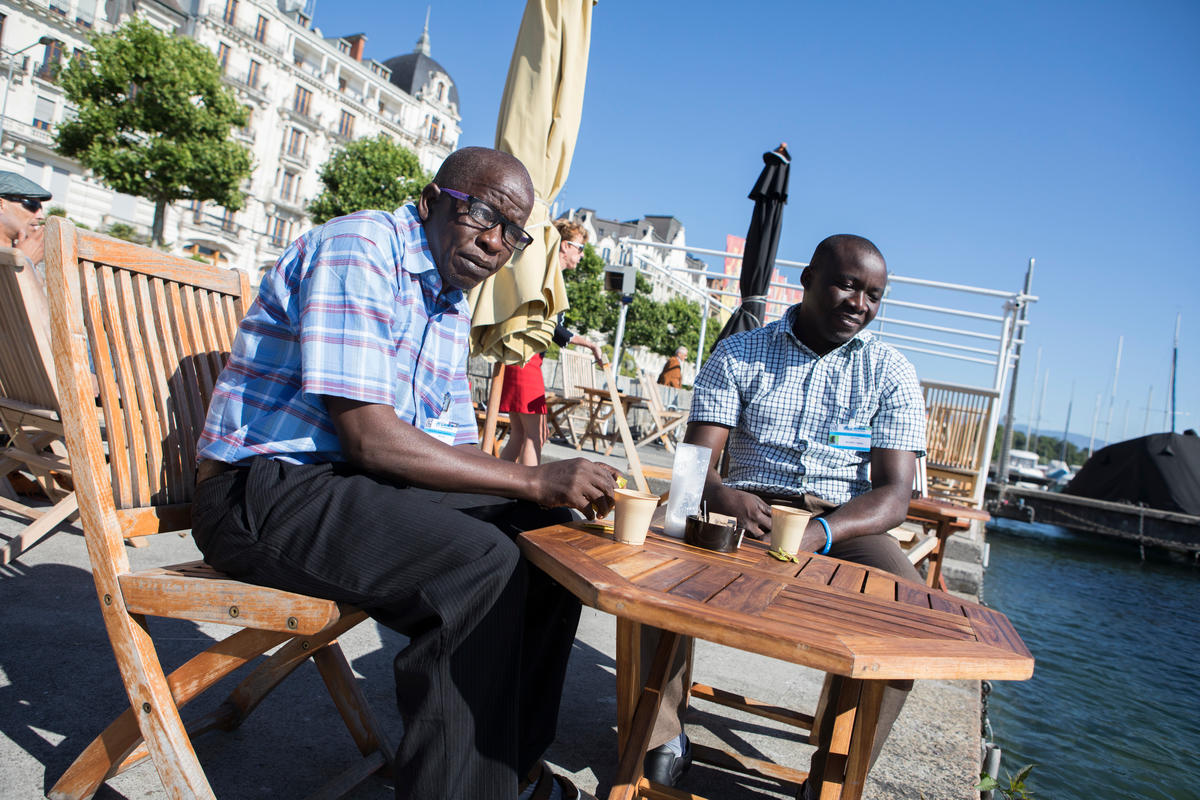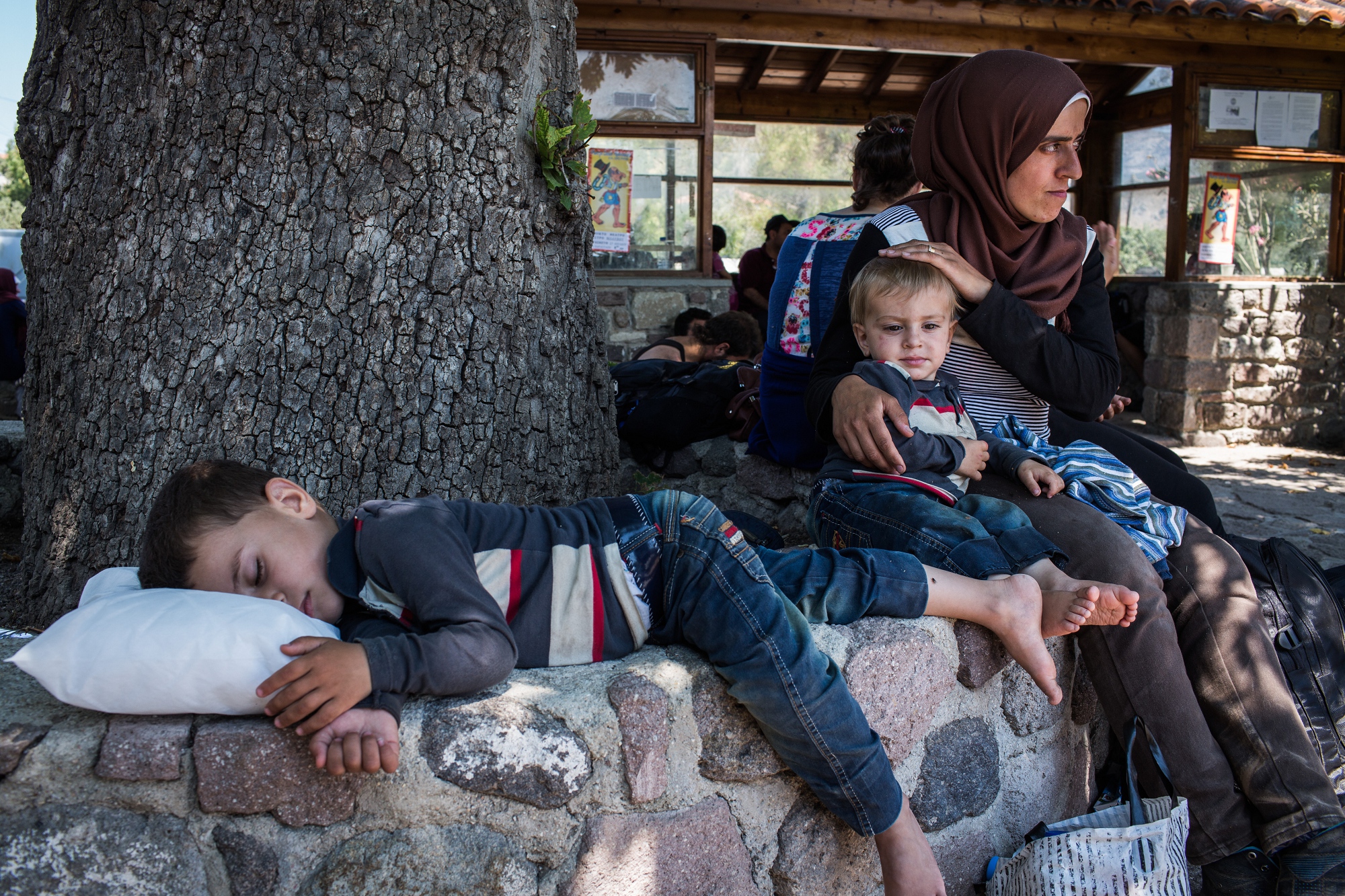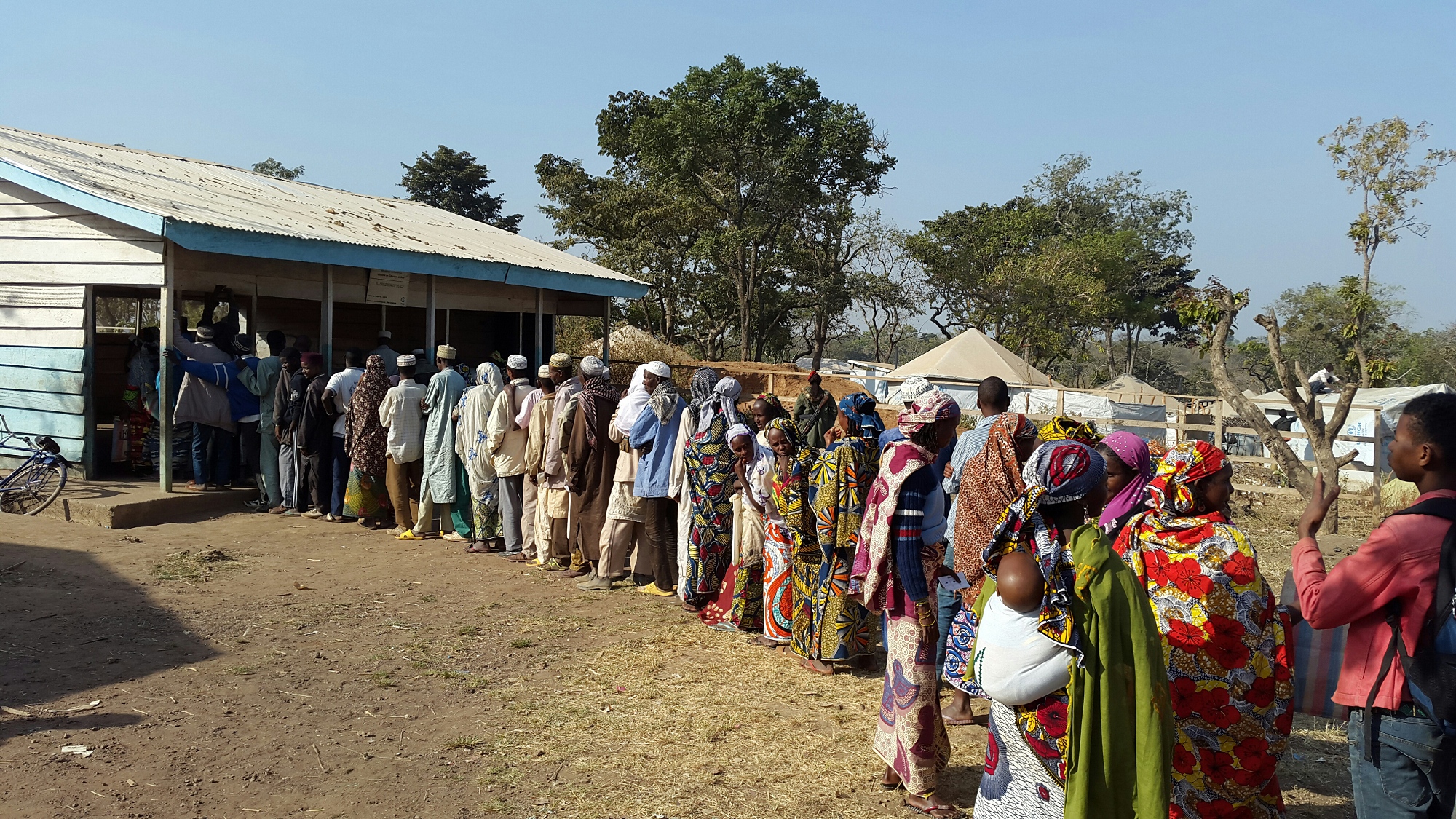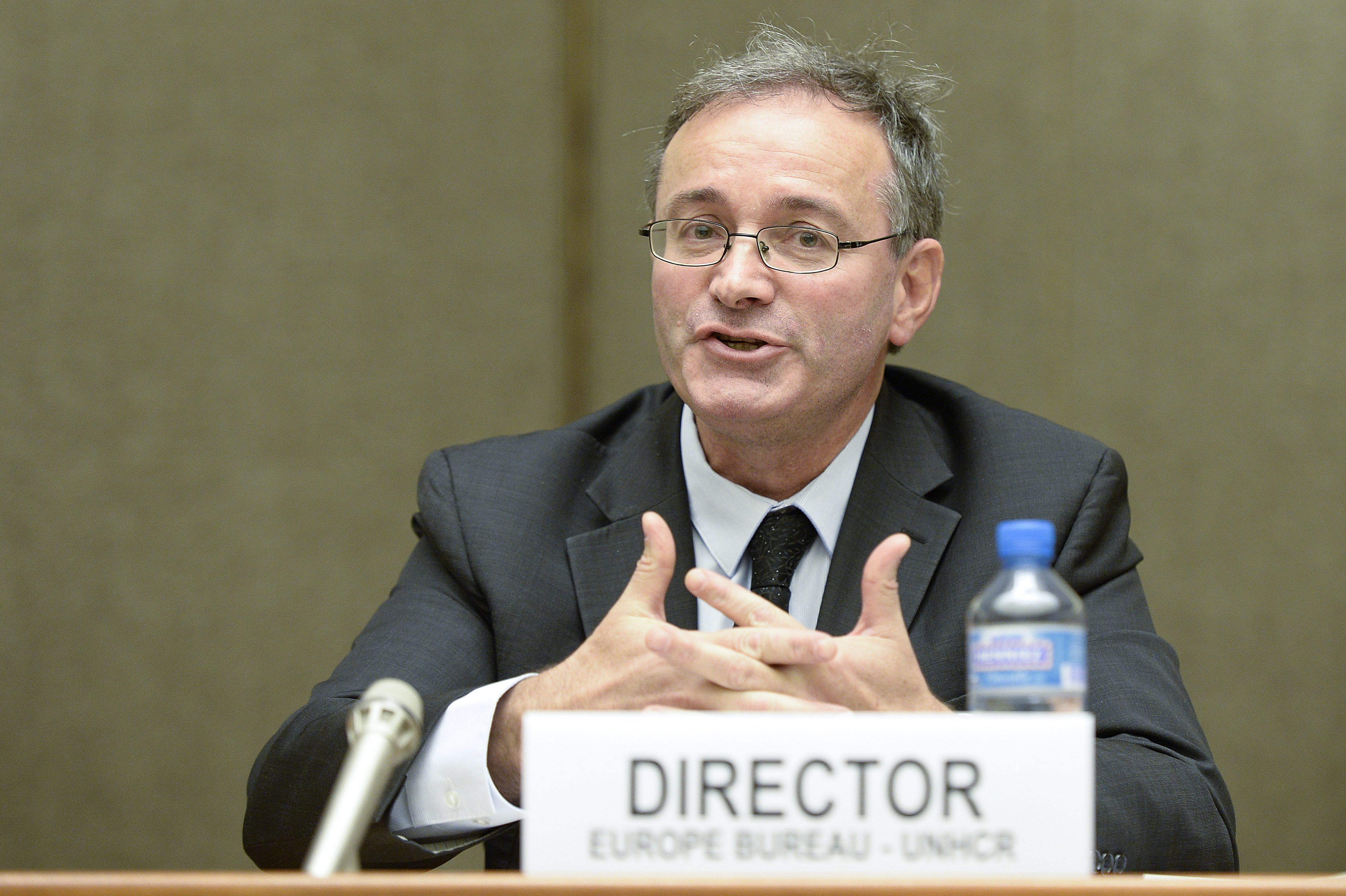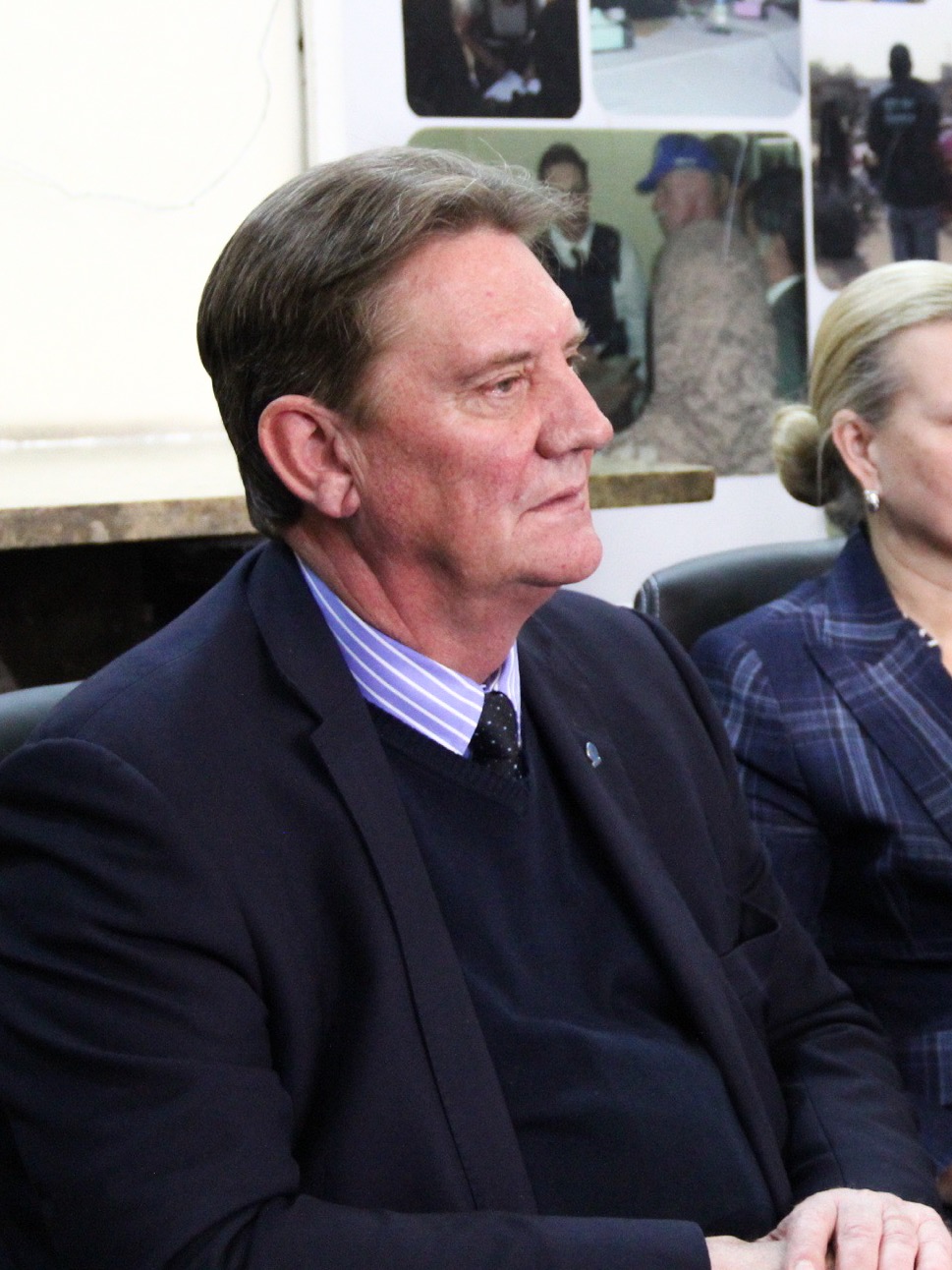Q&A: Ivorian priest offers haven for displaced people
Q&A: Ivorian priest offers haven for displaced people

DUÉKOUÉ, Côte d'Ivoire, May 18 (UNHCR) - In November last year, crisis erupted in Côte d'Ivoire over disputed results of the presidential election. The United Nations recognized Alassane Ouattara as the new president, but then-incumbent Laurent Gbagbo refused to step down. Months of conflict ensued between their troops and supporters, causing hundreds of thousands of civilians to flee their homes across this West African country. One of the hot spots was Duékoué in western Côte d'Ivoire, where a massacre took place at the end of March. Many families fled their homes and sought refuge at the town's Catholic mission, which hosted up to 50,000 people at the height of the crisis. Caught in the centre of this storm was Father Cyprien Ahouré, a 40-year-old Ivorian priest who runs the mission. Geneva-based UNHCR Communications Officer Fatoumata Lejeune-Kaba recently spoke to him by phone. Excerpts from the interview:
When did the Catholic mission start receiving displaced people?
After the second round of elections in mid-December there were a few events in Bangolo and then on the road to Monbeko Gbagbo, which led to a stream of displaced people. About 1,750 came to the Catholic mission. And there were the events of the third, fourth and fifth of January - an inter-ethnic conflict between the Guéré and the Malinke - and it resulted in yet another wave of displacement. At that time we had reached a peak of 15,000 displaced in the first week. On March 28, the war broke out and we're now at 27,000 people.
Each time there is conflict around Duékoué, in the town people always seek refuge. In 2002, we had a strong movement of Burkinans towards the Catholic mission and in 2004-2005 also there were displaced ethnic Guéré.
Was the Catholic mission ever targeted?
It was a big concern of ours. Because of the scale of the post-electoral crisis and the total absence of humanitarian agencies during February - for security reasons they were no longer coming to Duékoué, but staying in [the town of] Man - I contacted the local UN force, the Moroccan battalion. We had thought of every eventuality on how to secure the Catholic mission if a major conflict erupted in Duékoué, but that did not prevent stray bullets from killing two people and wounding three others in the mission.
How did you cope when Duékoué was captured by forces loyal to Alassane Ouattara at the end of March?
We got really scared because the fighting was with heavy weapons. Forty-eight hours of non-stop fighting, with so many displaced people in the church yard. It was very tough. At one point we had to go into hiding, to lie down, to set up a barricade to protect us from stray bullets. We had to also think about the displaced: the babies, women, elderly, all the vulnerable people out there in the compound. I can assure you, it was hard for us.
Were you surprised when you heard about the massacre in Duékoué?
Personally, I was not surprised. It was predicable because social cohesion is missing. In Duékoué there were two ethnic groups totally living apart. On one side, there were the Malinke, who were staying in the Kokoman neighbourhood, and the Guéré were concentrated in the Carrefour neighbourhood. I told myself that if things turned sour for the Guéré, they would take the blow. If it turned sour for the Malinke, it would be the same. So, I was not personally surprised [to hear about the massacre]. We talked about it with aid agencies; we rather feared it.
What is the current situation like in Duékoué?
There is a return to calm, but the population is still in shock. The people are still afraid. The new authorities assure us that they are doing everything to ensure safety for everyone. They give us hope, but the population is scared and so they do not want to move out of the church.
The UN Moroccan contingent provides security for displaced people in the Catholic mission. They report when they do night watches: there are fights, people are afraid of rape. I cannot even sleep.
Living conditions at the mission are not fit for humans. The complex is not big enough to accommodate up to 27,000 people. They live in really appalling conditions; it is overcrowded, people do not even have a place to sleep. Now the rainy season has come and people are suffering. The water source that feeds the Catholic mission is contaminated by faeces and urine. There is a risk of an epidemic outbreak.
We have to find a solution as soon as possible. We must free up the mission's compound, find a new site and help people return to their homes, accompany them back to their villages and, if possible, help them reintegrate.
What was it like when the aid agencies pulled out of Duékoué?
It was tough for us psychologically to know that we were abandoned. You know, I am a priest, I do not have humanitarian expertise. [I remember] I was there, I looked and I saw people. There was no assistance. Young volunteers who were with me were disheartened. They lost strength, they were worried about themselves and said: "If the humanitarians went away to get out of harm's way, then what about us, what do we do?" But it's all over now. I think today they are here.
What was the worst moment for you?
The hardest time, I think, was during the fighting. I cannot forget, because the children were screaming, women crying. At some point people started fleeing and the centre of the mission - where a large number of the displaced had gathered - suddenly emptied out. Fighting was raging around, so they jumped the wall. They fled to the bush, children jumping, shouting, families who had lost their children in the upheaval. It was, for me, the toughest moment.
Many people remain at the mission. What's going through their minds?
The displaced can't come to grips with the fact that they have to leave, but they must leave. They fear for their safety. People feel they are at the Catholic mission, they are safe. It's true we are there, it is quiet, we are looking after them, but I also think they need assurances that everything will be fine when they return home.
But I tell you, there is a lot of fundamental work we need to do for Duékoué. We must work for social cohesion because Duékoué does not only belong to the Guéré people. There are people of foreign origin and those who migrated from other regions of the country. As priests, we go to the villages and we see that our faithful are not composed mostly of Guéré. There are villages where the majority are either Burkinans, Yacouba, Wobe or Baoulé. If we all pull together, we can build peace. And if we manage to consolidate peace in Duékoué I think we could consolidate peace throughout Côte d' Ivoire - it is a small laboratory. Duékoué may serve as a model for all of Côte d' Ivoire.

